Amazon will break convention by dealing directly with railroads, bypassing intermodal marketing companies. Walmart’s relationship with railroads is both direct and through the marketing companies.
Amazon recently established a third-party logistics organization and has been rapidly moving into controlling more aspects of the supply chain, including operating its own aircraft, having its own airport hub, functioning as a non-vessel operating common carrier for ocean transport from China, and having a fleet of thousands of truck trailers.
The online retailer’s move into transportation apparently reflected its frustration with hired carriers’ inability in recent years to meet holiday deadlines.
Amazon has a tendency to eventually compete with its suppliers and this summer FedEx declined to renew air and ground contracts with Amazon. Earlier in the year, FedEx had issued a terse statement indicating Amazon traffic made up a very small portion of its business.
FedEx’s decision stemmed from Amazon’s demands, its growing role as a competitor, and low margins, according to Fortune.
Amazon has been heavily into intermodal, mainly on BNSF Railway, but so far only has about 250 of its own marked containers, according to the Journal of Commerce, which estimates Walmart’s identified containers number about 2,000.
Both Amazon and Walmart are concentrating their identified containers on the West Coast.





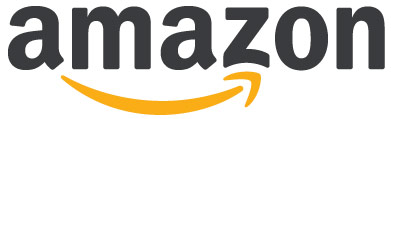

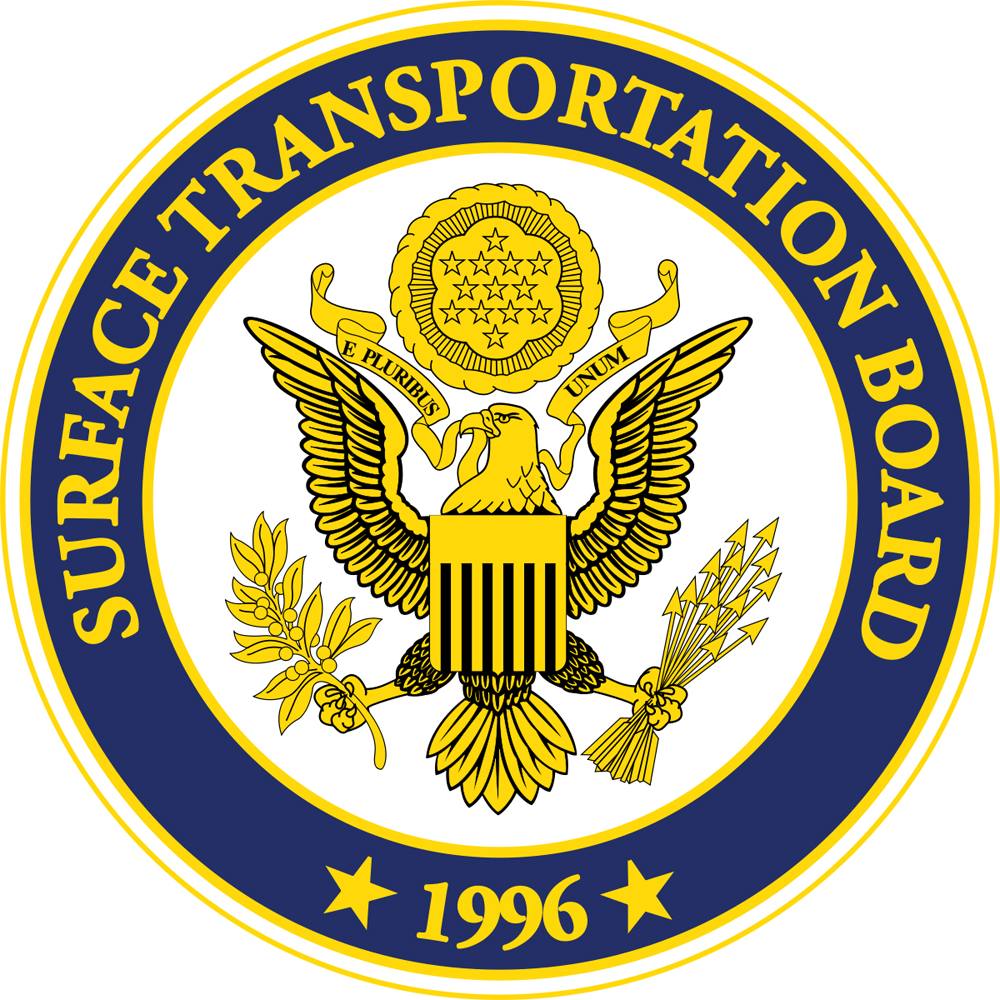
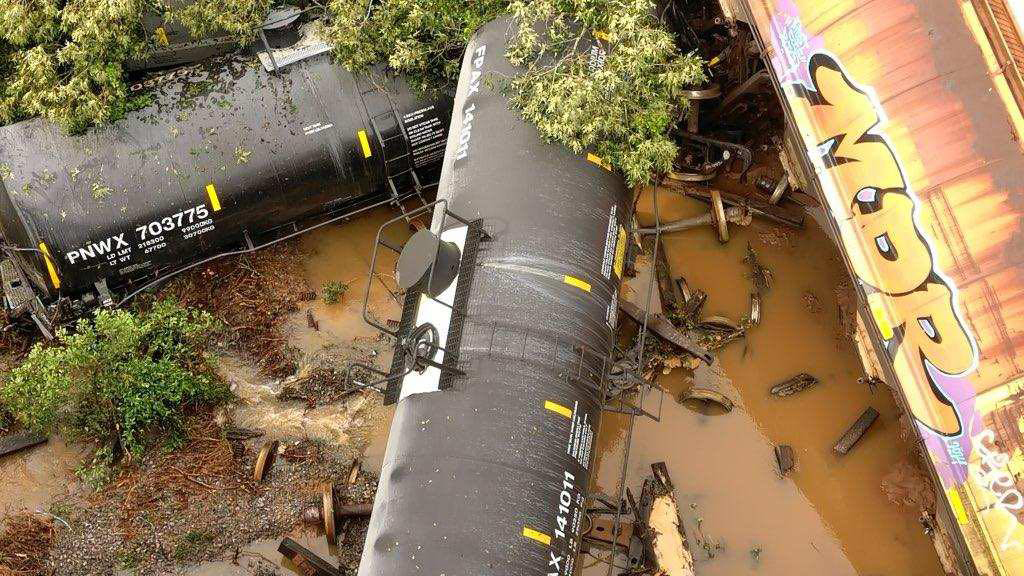
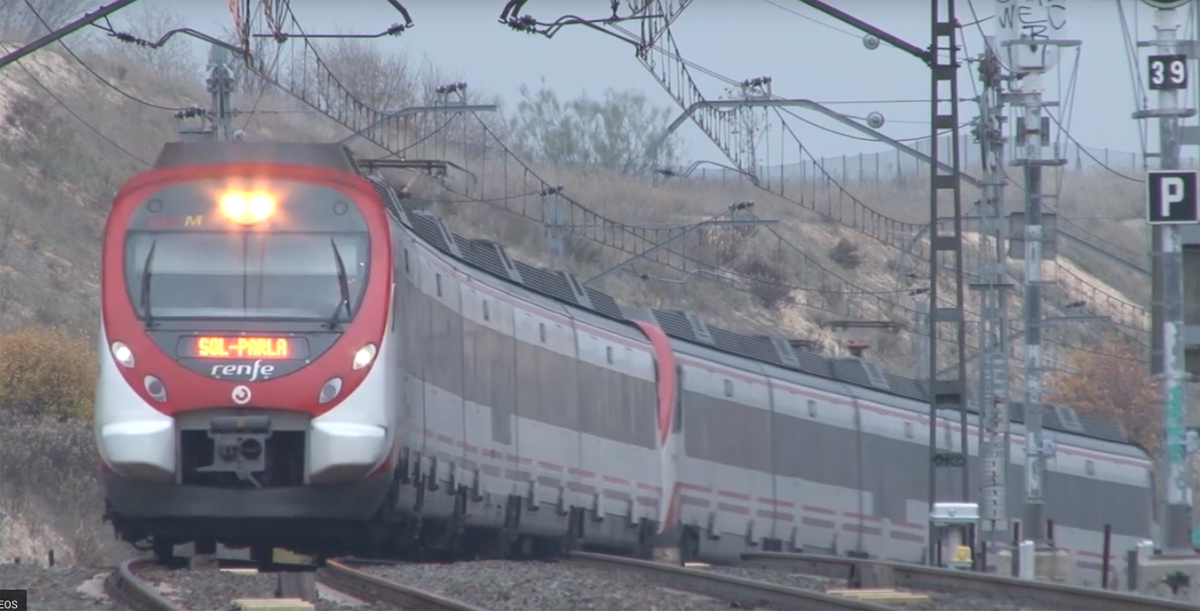
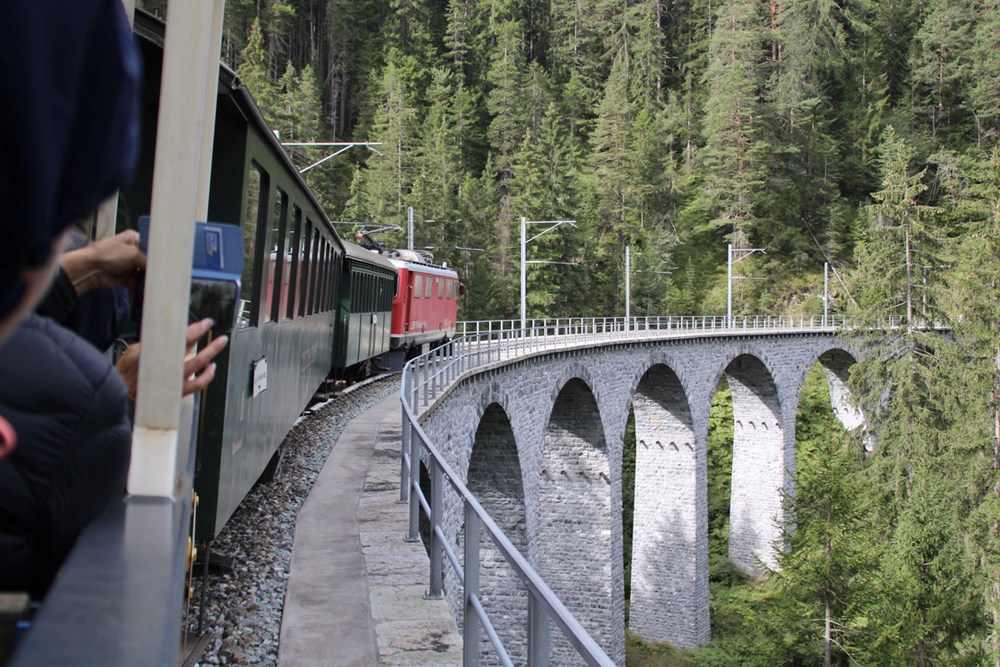




Here on the Lake Shore in Erie, I’ve seen Walmart and Amazon boxes, trailers, and contractors.
Since when did Wal Mart start doing this?
AMAZONSMILE generously gives 1/2% of eligible purchase.
50 years ago Amazon could buy up struggling lines. The Erie Milwaukee St. Paul and Pacific, assuming the Interstate Commerce Commission did not delay forever and deny. Now days, not likely.
I agree with Erasmus. How long until Amazon buys UP?
The way I see it, the big class 1’s are leaving value on the table. Pursing profit instead of market share and growth is cannibalizing their future. Which doesn’t matter so long as Wall Street is happy and valuations are high, but will that last forever?
The missing link here is a brilliant and revolutionary operating leader. The next generation’s EHH. You don’t just come in, wave a magic wand and expect instant transformation (autocorrect made that out to be a magic want, which is somehow appropriate).
It will be interesting to see how Amazon’s assimilation of whole foods goes. Not as well as expected is my impression at the moment. These mergers often don’t go so well. Amazon is wise, taking an incremental approach to increased logistics involvement.
PSR has nothing to do with precision. It’s an extreme cost-cutting and de-marketing scheme leaving operations imprecise and irregular, in effect acting as an orderly going-out-of-business strategy.
I have a hard time believing Amazon taking a controlling interest in a major railroad would pass regulatory muster. The government has only been happy to allow vertical integration if they aren’t taking over companies which work with competitors. Amazon taking a large controlling share in a Class One would be seen as anti-competitive as they could give preference to their own traffic at the expense of their competitors. With railroads structured as they are – as quasi-monopolies, I just don’t think it would fly.
Compare this to trucks and airlines, which use public airports and highways, and are freely competitive – as in, Amazon having their own airplanes and trucks isn’t outright anti-competitive for UPS and FedEx. For similar reasons, if they tried to buy UPS or FedEx, I would expect the same criticisms as then Amazon could preferentially treat their own stuff over other retailers.
Buying a common carrier is much much different than starting your own.
Amazon will not own or operate a railroad. They recently received patents that permit them to use rail containers that contain not only prepackaged goods, but also the drones to deliver them from a opening at the top.
The rail operator simply has to get their container set to a yard within 10-15 miles of the packages destination and the drones will do the rest.
Once the containers are empty, the drones return, the top door closes and Amazon signals the carrier they are ready to head back. Like bees returning to a hive.
This helps Amazon deal with the last mile issue and cuts down on handling costs.
What I am waiting for is the yard “raids” by the neighborhood kids who will climb atop the containers, wait for the doors to open and claim the booty inside before the drones can.
Interesting theory, Erasmus, and entertaining to ponder. In the meantime, if Amazon gets mixed up with someone other than BNSF, the PSR people better be very precision indeed or Amazon will not be pleased.
Hmmmm… So they have their own trucks, own issues they containers, own planes/airport hub, and non operating vessel common carrier for shipping…. And per the article, they eventually compete with their own suppliers. So, pure conjecture, but is this a very early precursor to them trying to buy a controlling interest in a Class 1 railroad to further control their supply chain? BNSF is privately held. KCS I think would be to small a target to do Amazon much good. While there are major population centers on the east coast, I might argue the same thing about CSX and NS. How much business does Amazon do in Canada? Enough to make CN or CP an attractive target? CN has the terminals in Prince Rupert. But do they want to take on the traffic and capiticity issues that CN deals with? So that leaves UP….
Fred has questioned in his column and blog who will be the game changer to shake up the industry. IF they were to make a play for any of them, it would be interesting to see what changes to operating practices get made.
Point acknowledged about separate ownership. However, it’s all still controlled by the same person… Bezos
@Erasmus Gonzales: Amazon does own Whole Foods. However, Jeff Bezos owns the WaPo and Blue Origin space company.
While Bezos is the CEO of Amazon. The ownership of WaPo and Blue Origin are separate.
Admittedly, an apples to oranges comparison, but hey, it’s all conjecture anyway… Yes I understand the argument below about a concern about an Amazon take over being anti competitive. But I don’t buy that as enough to stop Amazon from at least trying. How many containers/trailers do they have? 250? Yes, it’d be easy for that figure to change rapidly, but I don’t think they have enough volume, even if they put every last package on a train, to significantly gum up a railroad and make other industries suffer due to preferential treatment.
Further, how many other industries does Amazon have it’s hand into? Whole Foods and the Washington Post, as well as their space development (Blue Orion?) comes to mind. I can’t help but draw a comparison to Berkshire Hathaway… BH owns BNSF, owns electric utilities, even coal mines. That gives them single line control from mine to power plant. While I don’t see Whole Foods getting rail spurs, what’s to say that a rail oriented dc couldn’t be set up that distributes to Whole Foods, in addition to other Amazon packages? And, it wouldn’t be the first time rockets have been shipped by rail.
It may be far fetched, but I don’t think the idea is out of the realm of possibility, as he Bezos knows there’s other money that could be earned from being a rail carrier as well… I still hold, if it were to happen, it would be revolutionary to the industry.